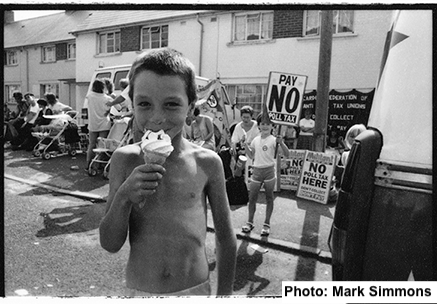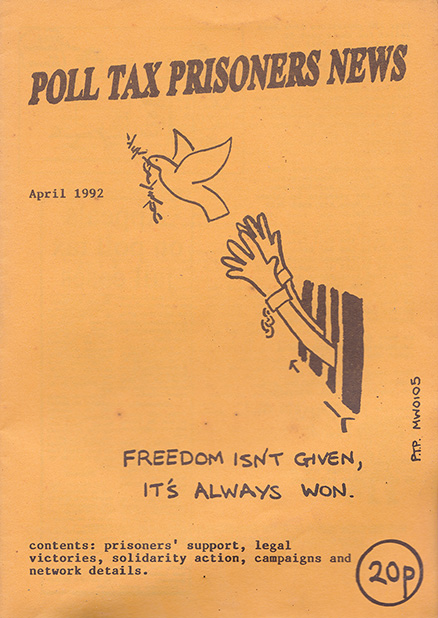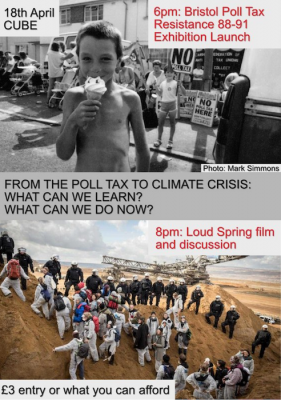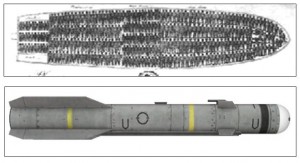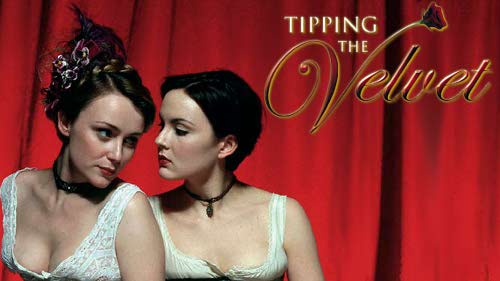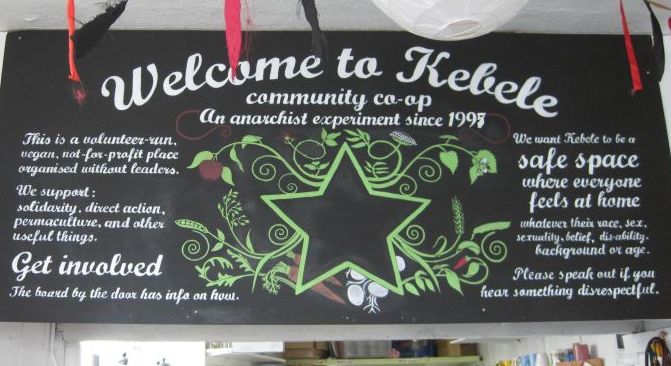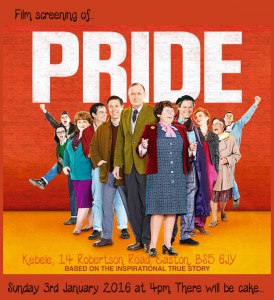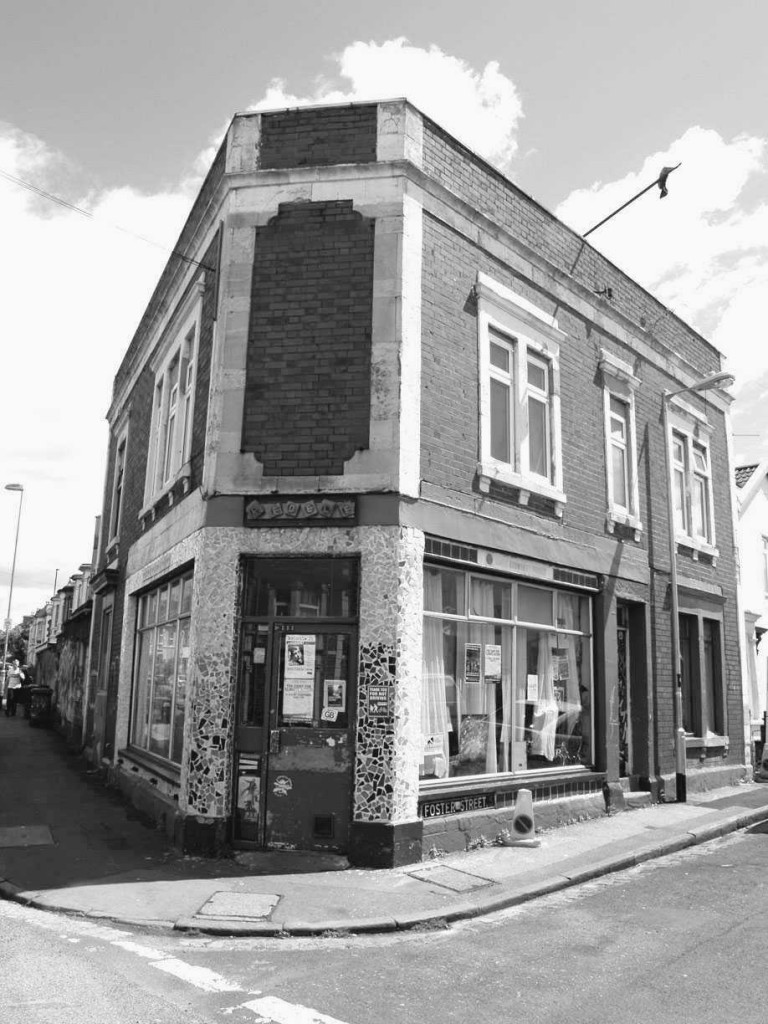Members of BASE library collective have curated an exhibition of materials from the Poll Tax resistance in Bristol, compiled from archives held at BASE with contributions from other comrades in the area, Bristol Archives and the Bristol Reference Library, as well as images from local photographer Mark Simmons. The exhibition will be on at the Cube Cinema for two months from April 18th, with a Launch Event on the 18th at 6pm, in collaboration with Angry Workers (Bristol), which will include a film screening at 8pm – Get tickets here for ‘From the Poll Tax to the Climate Crisis: What Can We Learn? What Can We Do Now?‘
The inspiration for the exhibition came from finding some forgotten materials from the Poll Tax years in BASE library while the Don’t Pay campaign was being promoted. However, we realised there are more parallels with today than simply the existence of a non payment campaign. By the end of the 1980s, ten years of Tory government had created widespread poverty, unemployment, and disillusionment with politics, with a weak parliamentary opposition failing to represent the poorest people.
It’s no accident that what most people know about the Poll Tax rebellion is the London riot on 31st March 1990. Blood, flames and horses make for lingering images in a way that public meetings just don’t, but it wasn’t a big demo that the government was afraid of. Police violence in Trafalgar Square was simply a failed attempt to crush unstoppable localised organising, which went on for several years before and after this moment. 17 million people refused to pay the tax – many of whom were breaking the law for the first time in their lives.
The exhibition sheds light on the ongoing and often forgotten work of keeping a campaign going locally: outreach among neighbours, regular public meetings, street stalls, organising rapid-response ‘phone trees’ and practical support for non-payers, as well as regular demonstrations on the street and direct action against bailiffs. It also shows the importance of ongoing solidarity in the face of state repression, both for Poll Tax non-payers and people facing charges as a consequence of protests. Over 100 people were jailed for taking part in protests (primarily in Trafalgar Square and Brixton in 1990), and more for refusing to pay and for resisting bailiffs – many of whom remained in prison even after the tax had been formally abolished.
Highlights of the exhibition include previously unseen ephemera, such as an account by local activist Sue Walker of attending the Trafalgar Square demonstration and witnessing police provocation and violence, local fliers, badges and newsletters, prisoner support zines and classic agitprop by Class War, as well as work by acclaimed photographer Mark Simmons, who has been documenting resistance in Bristol for over 30 years.
Resistance to the Poll Tax led to the tax being scrapped, and ultimately to the resignation of Margaret Thatcher. This resistance was radically decentralised with no official leadership, and a lot of organisation coming from people who did not see themselves as ‘activists’ or whose experience came primarily from community support, such as volunteering in unemployed workers’ centres, rather than politics.
At a time of increasing inequality and increasing criminalisation of dissent, we think it is important to keep the lessons of the Poll Tax campaign in mind. We still have time to build a better world, and the practical solidarity and mass organising of the Poll Tax resistance shows us one of the ways we might get there.
Were you active in resisting the Poll Tax in Bristol? Let us know what’s missing from the exhibition and the story we’re telling. Watch this space for a DIY archiving session, time and venue TBC, so we can record our collective histories together and share more stories of resistance. And if you’re interested in joining BASE library collective and helping with the ongoing work of ordering what is in our collection, get in touch on baselibrary@riseup.net
